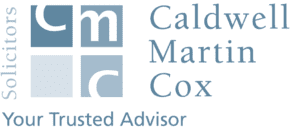Every business, at some point in time, is going to have outstanding invoices which need chasing. Outstanding invoices can have a significant impact on your cash flow so it is important to ensure that you have the best processes in place to recover these debts. Below are some tips we recommend to all businesses:
1. Put the contract in writing!
Whether it is a simple one off agreement, an ongoing supply to a regular client, or a complex arrangement, all agreements should be reflected in writing. This is to ensure that all parties know exactly what they are to do, when they are to do it, how much it will cost, when payment is to be made, and to remove doubt as to what the terms of the agreement are.
2. Know who your customer is
It is not uncommon for the person you are dealing with to be a director of one or more companies, or an employee of an organisation, and it is important to make sure you know which company is your client and to confirm that the person you are dealing with an the authority and power to enter into a binding agreement on their behalf. This is important if you ever have to chase an invoice as you need to know who you provided goods or services to and who owes you the money. Suing the wrong company can lead to them to simply say “I didn’t agree to anything with you”. Consider asking for copies of identification documents such as a driver licence to obtain the full name and address of your customer. If is a company or business get a signed personal guarantee from the Director or owner. We are constantly surprised by the number of our clients who never asked the surname of their customer when supplying them with goods or services!
3. Maintain records
Keeping copies of all contracts, agreements, letters, emails, dockets and forms is vital when it comes to proving that someone owes you money. Keeping and dating notes of conversations can also be of great assistance, especially when those conversations contain admissions of the debt owed and an acknowledgment of receiving the goods or services. Always confirm any verbal changes to the agreement in writing – even by just sending a confirmatory email.
4. Follow up invoices early
Following up invoices early with the client is vital as it is during this time that the customer will still appreciative of the goods or services you provided. The longer you leave it, the more time people have had to move on and forget about the great job you have done, or the greater the risk that they have re-allocated or spent the money that they had set aside for you. You should develop a system to keep track of all outstanding invoices and send out prompt reminder letters and make calls after certain periods of time have lapsed after an invoice is issued. If you give a time limit in your letter, make sure you show you mean it by following up again immediately if the time limit is not met
5. Seek assistance
After you have done everything suggested you may still have a few debts unpaid. The question then is, what more can I do? There is always more than one solution to a problem and seeking the assistance of our Debt Recovery Team can often lead to your customers making payment immediately or negotiating a payment arrangement. If Court action is required, then it can be handled professionally and effectively.
At Caldwell Martin Cox, we have developed a streamlined and efficient debt recovery process that can be tailored to the circumstances and commercial needs of individual businesses. We can also analyse your current systems to assist in minimising future debts, increasing cash flow and retaining proof of transactions.
Don’t let someone else receive benefits to the detriment of your business. It’s your money!
